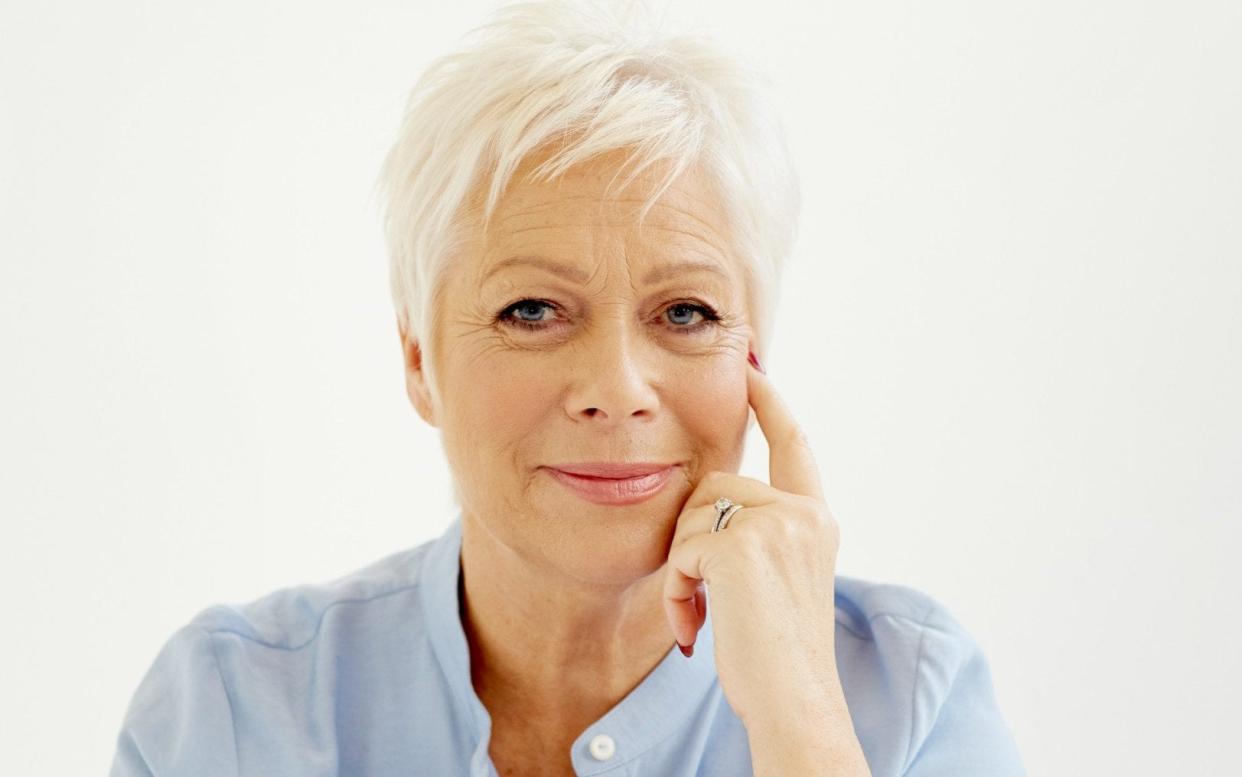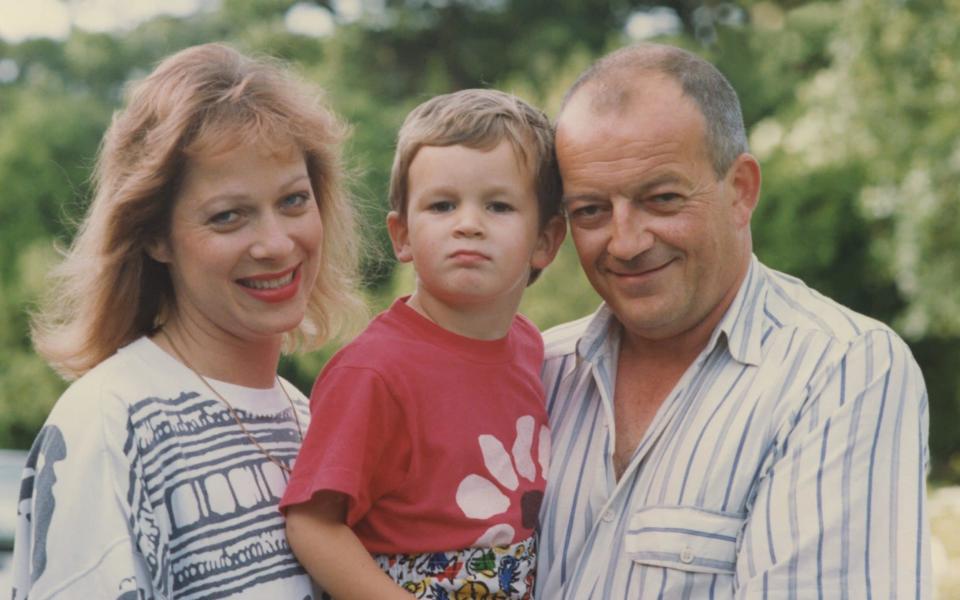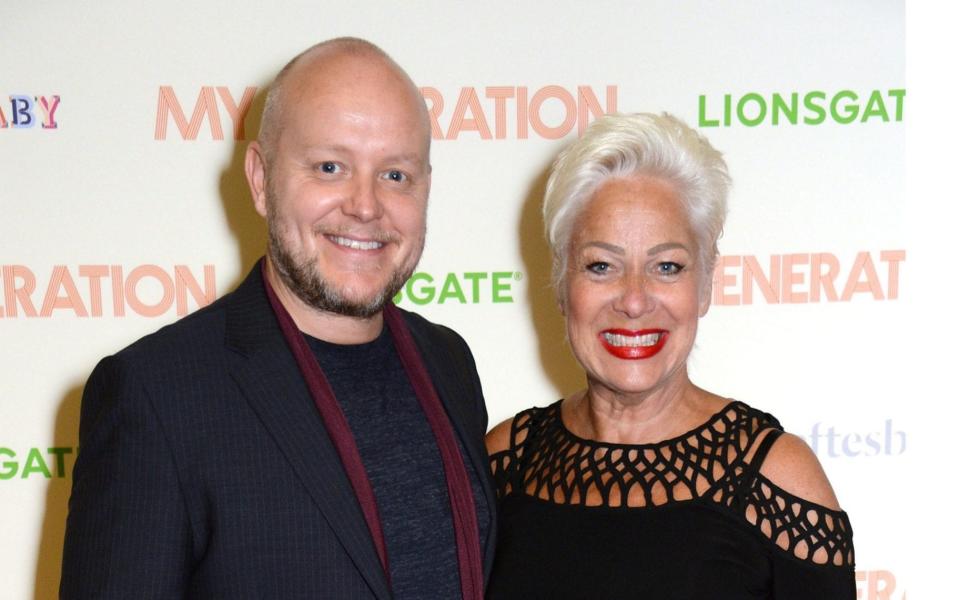Denise Welch on her struggle with depression: 'I feel grateful that I'm still standing'

Precisely 32 pages into The Unwelcome Visitor, Loose Women panellist Denise Welch’s chatty, conversational account of living with clinical depression, my stomach abruptly swooped upwards before plunging into liftshaft freefall.
This was not the plan. Having suffered from debilitating depressive episodes on and off since my early teens, I have deliberately body swerved what I term Low Mood Literature on the Tolstoyan grounds that each unhappy person is unhappy in their own way and it’s actually quite tedious (sorry) to plough through other people’s usually quite niche travails.
But these days there’s a celebrity out there for every mental health cohort; the drinkers, the thinkers, the wild swimmers, free runners, gardeners and agoraphobics all have their various champions.
That’s not a bad thing but it is A Thing. Former Labour spin doctor Alistair Campbell is due to publish his Living Better: How I Learned to Survive Depression and I can safely predict there won’t be much crossover between the readership of his book and Welch’s. But by God, there will be a readership for both in the wake of the Covid-19 pandemic.
“There’s a mental health tsunami on its way,” says Welch, speaking to me on the phone from her home in Cheshire. “As lockdown eases off so many people will need treatment, but the NHS just hasn’t got the resources. So what are they to do?”
Self-help memoirs are a start. Welch has written two best-selling autobiographies but The Unwelcome Visitor: Depression and How I Survive It is different. It concentrates on her tormented inner life rather than the relentlessly upbeat pocket-rocket persona she projected in public.
Welch thinks as she speaks as she writes; calling her depression “the unwelcome visitor” is her one and only foray into metaphor.
“The likes of Stephen Fry and Ruby Wax have written very eloquently about their mental health battles,” she says. “My tribe wouldn’t be drawn towards someone who was Oxbridge-educated. My book is aimed at Becky from Bolton.
“She needs help too. So does her husband and her friends. They need to understand that she can’t just pull herself together, that she can’t control the pain. I’m relatable. I don’t have the answers. I am just telling my story, my truth and if I can help people then that will be my proudest legacy.”
Welch was 31, a hugely popular soap star and self-confessed party girl when severe post-natal depression hit after the birth of her first baby, Matthew. It never quite left.
The next thirty-one years have been spent learning how to manage her “Unwelcome Visitor”, the grim reaper who appears unbidden, draining the colour, leeching the joy from her world.
I tell her that despite my best efforts, her plain prose reduced me to rubble. I felt, as a young person might say, “triggered” when I abruptly welled up with tears of recognition at her shameful, secret post-natal trauma.
“I wanted my feelings back: just to be able to experience emotions again, especially for my baby; just to be normal,” Welch writes in The Unwelcome Visitor.
“Even though I’m not religious in the least, I used to pray, ‘Dear God, please, please, help me to love my baby.'”
I had no inkling that I would be spirited back to the aftermath of a wretched labour in 2008 when I too felt desolate, empty, mad – and as terrified as she was of being unmasked as a wicked, unnatural woman devoid of maternal feeling.
I literally couldn’t bear to look at my desperately-wanted second daughter, with her unnervingly intense brown gaze. Instead, I would fix my own eyes on the middle distance while baring my teeth in a caricature of a smile so she wouldn’t guess I was broken.
For her part, Welch recounts that years later, long after baby Matthew had grown up to become Matt Healy, singer in the achingly cool band the 1975, he wrote a song “She Lays Down”, that painfully captured the slow-motion horror of post-natal depression.

“She’s appalled by not loving me at all,” he sings. “She wears a frown and a dressing gown/When she lays down.”
As a coping mechanism, Welch self-medicated with booze, drugs and affairs while the tabloids (who had hacked her phone) lasciviously snapped every lairy red carpet stumble.
“I would get so stressed and anxious that my face would contort like I had Bell’s palsy, so I drank to anaesthetise the fear and the pain,” she says.
“I was terrified that I would let people down, scared of accepting any new job – but of course we’re all actor whores at heart and when you get the call from your agent you just say 'yes’ regardless. And then drink to numb the fear.”
Welch, whose early career saw her in appear in ITV dramas such as Spender and Soldier Soldier, clinched household name status when she took the part of Natalie Barns in Coronation Street in 2018.
A staggering 24 million viewers watched her wedding to Des Barnes; she went on to become landlady of the Rovers Return. It was the big time, yet she had never felt lower.
“Being in Coronation Street is huge, with really long hours and I wasn’t being kind to myself,” she admits. “Everybody was busy, everybody was under pressure and I didn’t have the courage to tell anyone I wasn’t feeling well.
“I was drinking all night then getting up at 5 am trying to pull myself together to go to work.”
Sober for the past eight years, Welch has morphed from her self-styled alter ego “Drunk Spice” to a flag-waving “Soberista” and vocal mental health campaigner.
Her message went viral last year when she posted on Instagram while suffering from “a mild depressive episode”. It was shared more than 1.3 million times.
“I was astonished that so many young people contacted me afterwards,” she says. “It struck a chord with them. I have a lot of time for that generation who are always being slagged off. They live on social media, in a cycle of compare and despair as they see other people parading 'perfect' lives; exotic holidays, model boyfriends, designer clothes.
“For them lockdown has actually been a relief because there’s no FOMO, fear of missing out, when everyone is at home. But as things start to change, that will kick in again.”
I confess to her that when I saw her little film, I oscillated wildly between sympathy for her plight, admiration for her pluck – and curiosity about whether she’d had work done.
Hair in a towel, face scraped free of makeup (arguably a far more courageous social media stance than talking about her depression) she looked great.
Welch hoots with laughter (just the eye bags, love, when she was 50). Later in the call, we end up a bit weepy before comforting each other like over intimate strangers in the Ladies’ at a Chester nightclub.
“I wanted to write a book about depression that wasn’t depressing,” says Welch, who admits that elder son Matty’s childhood was impacted – not entirely spoiled, but definitely marred – by her boozing.
His father is character actor Tim Healy of Auf Wiedersehen Pet and Benidorm fame. Twelve years later they went on to have another son, Louis, who is now 19 and an actor on Emmerdale.
Welch then went on to meet her third husband, artist Lincoln Townley, 47. They married in 2013, a year after she won Celebrity Big Brother, despite her ill-advised topless frolic in the hot tub. She and Lincoln both went sober together.

“After I gave up drinking my life has been completely different,” she tells me. “I feel grateful that I’m still standing, to be honest.”
Welch is under no illusions that her mental health remains a work-in-progress. Having given up alcohol and jettisoned recreational drugs, she sought expert help and was placed on hormone replacement therapy by a Harley Street physician. Mindfulness and CBT therapy have also improved her emotional stability.
“My depression is endogenous – it arises regardless of external events – and although the measures I take have reduced the severity of episodes, there is no magic wand. That’s why this book is about surviving this illness, not about curing it.”
At the end of The Unwelcome Stranger, Welch’s sons, spouse and friends have added their own thoughts about her journey.
“Reading those accounts really got to me.” she admits. “When I look back I feel so sorry for the person I was. I don’t want Becky from Bolton to suffer in silence the way I did.”
The Unwelcome Visitor: Depression and How I Survive It by Denise Welch is published by Hodder & Stoughton in hardback, ebook and audio.


